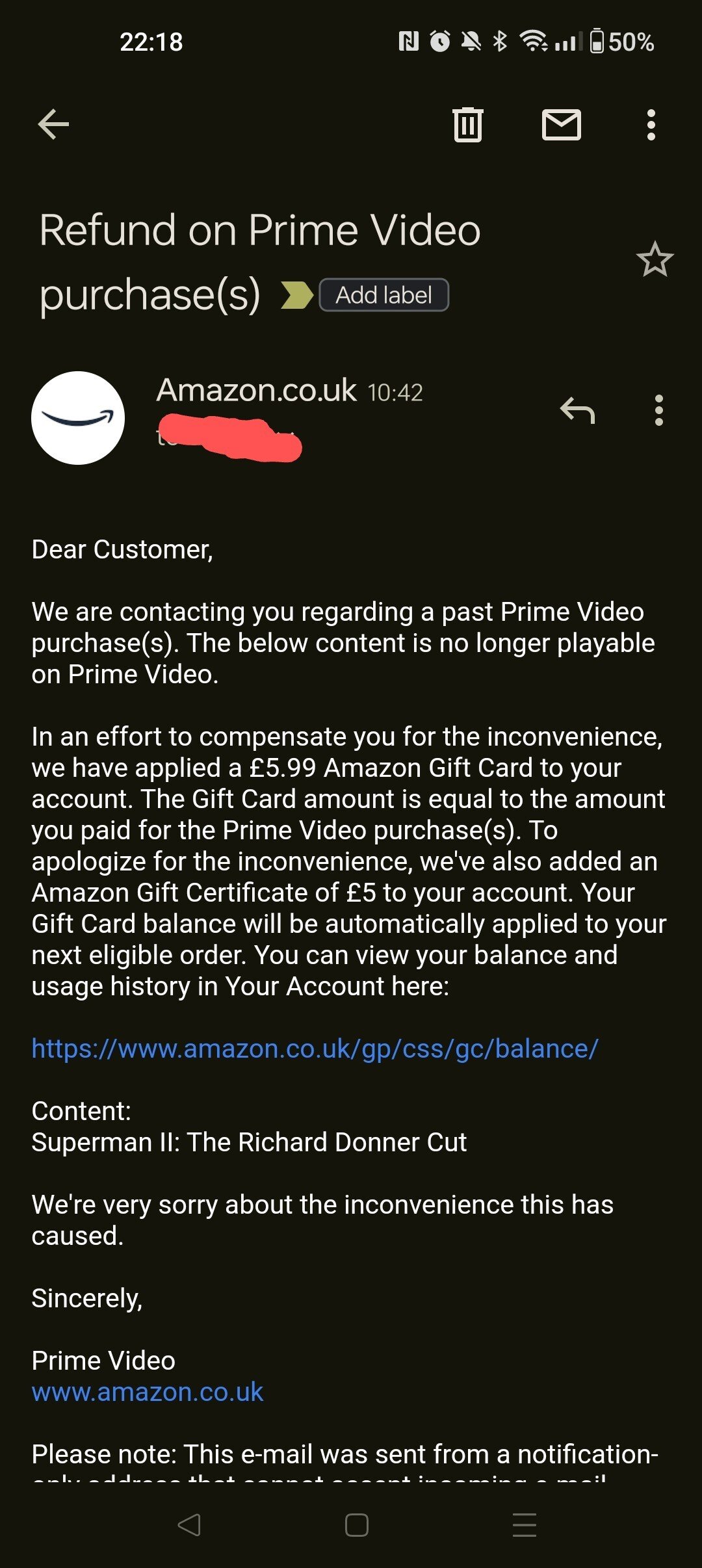this post was submitted on 03 Oct 2023
1820 points (97.7% liked)
Technology
68526 readers
3435 users here now
This is a most excellent place for technology news and articles.
Our Rules
- Follow the lemmy.world rules.
- Only tech related news or articles.
- Be excellent to each other!
- Mod approved content bots can post up to 10 articles per day.
- Threads asking for personal tech support may be deleted.
- Politics threads may be removed.
- No memes allowed as posts, OK to post as comments.
- Only approved bots from the list below, this includes using AI responses and summaries. To ask if your bot can be added please contact a mod.
- Check for duplicates before posting, duplicates may be removed
- Accounts 7 days and younger will have their posts automatically removed.
Approved Bots
founded 2 years ago
MODERATORS
you are viewing a single comment's thread
view the rest of the comments
view the rest of the comments

We've taken away this thing you've bought, here's a gift card so you can give us that money back again later.
strictly speaking it's
Gift cards and store credit = "we keep your money."
The reality is that they didn't give the customer back anything. It's the usual corporate sales speak.
"50% off" and "Save $10" aren't actually real either. $10 doesn't appear in customer's bank accounts after a purchase and customers often have no concept of what the item originally cost before it was marked up and brought to market by the the corporation. It's sales and marketing psychological games that many people can't see through. $9.99/$59.99 is cheaper than $10.00/$60.00 true and people somehow feel better buying the former versus the latter as though that penny isn't only a penny and they didn't give the corporation the 99.99% of the money they wanted.
Explain this to my wife please... "I saved so much money today!" Plunks down several bags of crap that will end up being thrown away eventually...
I didn't understand this for a long time myself. And I can't rightly remember when I first learned about this sort of thing. But once I did, information just seemed to flow to me from multiple directions. Maybe look up classic tactics around sales and marketing, then deceptive, yet typical, psychological sales and marketing practices. There's a book on credit cards I enjoyed years ago "How to Take Advantage of the People Who Are Trying to Take Advantage of You: 50 Ways to Capitalize on the System" by JSB Morse (Though long story short, avoid debt and credit cards). One video on YouTube turned me off of buying ink cartridges once I found out what they truly cost versus the exorbitant amount they sell them for. Capital rip offs.
That's fine. Always need to purchase more storage devices.
It’s more like: we took it away and gave you a ~100% ROI by adding a $5 gift card to your “refund”. Still sucks though.
It's Amazon, dude. You may not like their business practices but it's a fair bet they're going to have something you want at a decent price.
In your example you wreck someone’s car which they didn’t buy at your junkyard. It’d be to think of it like this: you own a car dealership. You wreck your clients car worth 10K. You tell them to pick any car worth 20K off of your lot. Sure, the 20K includes your profit margins, but your client still gets $10K worth of car for free.
Idunno what's going on here but I've got a burning curiosity as to whether this grape store has any lemonade.
Joke's on them, I don't even see it :D Here, have an upvote!
Unless you brought glue, in which case I'd best waddle away...
Yeah, just like with the original purchase. They made money on that too, but returned the full amount, including their margin. Amazon loses money on this compensation. They don’t sell stuff with a 10x margin.
Step 1: OP bought a video for $5.99 Step 2: he gets a refund + $5 gift card Step 3: OP can buy a video for $10.99 or whatever else he wants for $10.99
Ultimately, OP wins a $5 gift card and saw a free movie.
After they clawed back the royalties they paid on the original content, I assume (based on their practices around ebooks and audiobook).
This is news to me (but not surprising), what do you mean?
https://writersweekly.com/angela-desk/amazon-is-screwing-over-authors-and-publishers-once-again